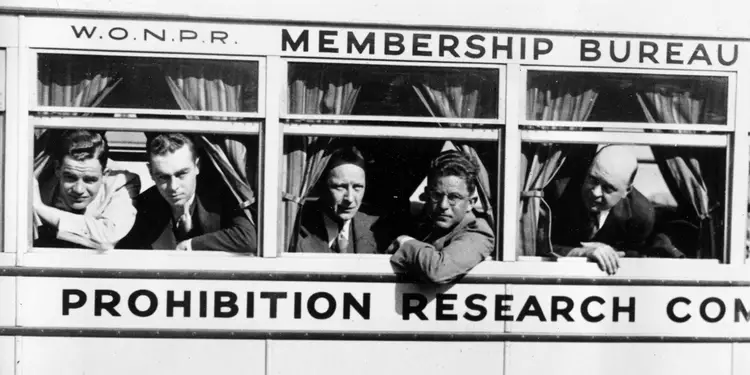Now Reading: Starbucks’ CEO Transition: Brian Niccol from Chipotle Takes the Helm
- 01
Starbucks’ CEO Transition: Brian Niccol from Chipotle Takes the Helm

Starbucks’ CEO Transition: Brian Niccol from Chipotle Takes the Helm
“`html
The End of Laxman Narasimhan’s Tenure
Laxman Narasimhan’s tenure as CEO of Starbucks marked a period of transformation and adaptation for the global coffee giant. Appointed in September 2022, Narasimhan assumed the role with a vision to foster innovation and expand Starbucks’ market presence. However, his departure in 2024 led to significant discourse among stakeholders.
During his tenure, Narasimhan introduced several strategic initiatives aimed at enhancing customer experience and operational efficiency. One of his notable achievements was the acceleration of Starbucks’ digital transformation, which included the expansion of mobile ordering capabilities and improved loyalty programs. Under Narasimhan’s leadership, Starbucks focused on sustainability, adopting measures to reduce the company’s carbon footprint and promoting eco-friendly practices across its supply chain.
Despite these successes, Narasimhan faced considerable challenges. The COVID-19 pandemic created unprecedented hurdles, causing disruptions in global supply chains and fluctuating consumer behavior. To counter these issues, Narasimhan implemented a series of cost-cutting measures and streamlined operations. However, these actions received mixed reactions from employees and market analysts. Some employees expressed concerns over job security and increased workloads, while market analysts noted the impact on Starbucks’ core values and corporate culture.
Financially, Starbucks experienced a moderate recovery in sales and profitability under Narasimhan’s stewardship. The company witnessed a rebound in its stock prices, although it did not reach pre-pandemic levels. Analysts cited Narasimhan’s prudent management of resources and strategic investments as factors contributing to this recovery. However, the competitive landscape also posed challenges, with rivals like Dunkin’ and independent coffee shops intensifying their market presence.
Insights from stakeholders revealed a mixed assessment of Narasimhan’s performance. While consumers appreciated the focus on digital convenience and sustainability, employees had reservations about the long-term implications of the strategies deployed. Market analysts remained divided, with some praising his responsiveness to industry trends and others critiquing the execution of his vision.
Brian Niccol: Chipotle’s Success Story
Brian Niccol’s tenure as CEO of Chipotle Mexican Grill has been marked by a series of transformative measures that significantly improved the company’s performance. Appointed in 2018, Niccol stepped in at a pivotal moment when the brand was grappling with crises relating to food safety and declining customer trust. Drawing from his extensive experience, Niccol implemented a robust turnaround strategy focused on operational efficiency, menu innovation, and digital transformation.
One of Niccol’s seminal achievements at Chipotle was enhancing operational efficiency. He streamlined processes, introduced stringent food safety protocols, and improved the overall customer experience. These efforts restored confidence in the brand and attracted a loyal customer base. Niccol’s strategic vision extended to menu innovation, where he introduced new items that resonated with health-conscious consumers while staying true to Chipotle’s core offerings.
Under Niccol’s leadership, Chipotle embraced digital transformation, becoming a frontrunner in integrating technology within fast-casual dining. He oversaw the launch of the Chipotle app and optimized the online ordering system, which resulted in a substantial increase in digital sales. This digital integration was crucial, especially during the COVID-19 pandemic, allowing Chipotle to navigate the challenges and capitalize on the surge in takeout and delivery services.
Financially, Niccol’s initiatives yielded impressive results. Chipotle experienced consistent growth in revenue and profitability, and its stock performance reflected this positive trajectory. His background prior to Chipotle includes significant roles at Taco Bell, where he successfully revitalized the brand through innovative marketing and product strategies. Such a track record underscores his adeptness in steering food service brands toward growth and stability.
Given Brian Niccol’s comprehensive expertise in driving operational success, fostering innovation, and leading digital transformations, he is poised to bring a similar dynamism to Starbucks. His strategic acumen and proven ability to rejuvenate brands make him an apt leader to helm Starbucks, as it navigates its future challenges and opportunities.
Implications for Starbucks and Its Stock
The recent transition in Starbucks’ leadership with Brian Niccol, formerly the CEO of Chipotle, taking the helm, has stirred significant discussions among investors and market analysts. In the immediate aftermath of the announcement, Starbucks’ stock (SBUX) experienced a surge, indicating a positive initial reaction from the market. Investors appear optimistic about Niccol’s proven track record of driving growth and innovation at Chipotle.
Brian Niccol’s tenure at Chipotle was marked by significant operational improvements and a focus on customer-centric strategies, which played a crucial role in revitalizing the brand. Stakeholders are now expecting a similar strategic shift at Starbucks that could enhance both the brand’s market presence and its operational efficiency. Financial analysts believe that Niccol’s consumer-first approach and keen understanding of the fast-casual dining sector could translate into successful initiatives for Starbucks, such as modernizing the menu offerings and leveraging digital channels more effectively.
Short-term market reactions post the announcement were especially reflective of investor confidence. Online trading forums and financial news outlets reported a notable increase in bullish sentiments towards Starbucks stock. This enthusiasm is partly driven by Niccol’s reputation for implementing aggressive yet successful turnaround strategies. The market forecasts for SBUX in the near future remain largely optimistic, with many experts suggesting that a well-charted growth trajectory under Niccol’s leadership is a plausible scenario.
In addition, long-term implications of this leadership change are substantial. Analysts forecast that Starbucks may see strategic realignments that focus on sustainability, digital transformation, and potentially, an expansion into new verticals. These shifts might be instrumental in not just stabilizing but also amplifying Starbucks’ competitive edge in the global market. Investor sentiment leading up to the leadership change was one of cautious optimism; however, post-announcement, there’s a discernible shift towards a more positive outlook.
Expert opinions from financial analysts suggest that Niccol’s impact on Starbucks could be substantial, aligning closely with the company’s growth ambitions and market expansion. The long-term projections for Starbucks indicate an upward trend as markets anticipate a series of strategic initiatives that could enhance shareholder value. This leadership transition, therefore, positions Starbucks in a potentially advantageous stance to capitalize on emerging market opportunities and drive sustained growth.
Reflections from Industry Leaders and Stakeholders
The appointment of Brian Niccol as the new CEO of Starbucks has elicited significant reactions across the industry. Mellody Hobson, the chair of the board at Starbucks, shared her thoughts on this strategic leadership transition. “Brian Niccol brings a wealth of experience in the food and beverage sector,” Hobson stated. She believes Niccol’s track record at Chipotle, where he spearheaded a robust turnaround, positions him well to drive innovation and growth at Starbucks. Former CEO Howard Schultz echoed similar sentiments, emphasizing Niccol’s proficiency in enhancing customer experiences and operational efficiency. Schultz remarked, “His dynamic leadership will be instrumental as Starbucks charts its next chapter in global expansion.” These endorsements underscore confidence in Niccol’s ability to guide the company through evolving consumer landscapes and competitive pressures.
Conversely, stakeholders at Chipotle have expressed mixed feelings regarding Niccol’s departure. While recognizing the substantial contributions he made, Chipotle’s board remains optimistic about sustaining the momentum. One senior executive noted, “Brian Niccol’s strategic vision has been transformative. However, our resilient framework will endure, grounded in the principles he established.” This sentiment is reflected in the cautious yet hopeful outlook on Chipotle’s stock (CMG). Analysts predict some initial turbulence but foresee stabilization as the company recalibrates under new leadership. Investors are keenly monitoring how Chipotle will maintain its growth trajectory, particularly focusing on upcoming quarterly earnings for indications of continuity.
Ultimately, Brian Niccol’s transition from Chipotle to Starbucks is being watched closely by market observers and industry insiders alike. While there is optimism regarding his potential impact at Starbucks, the transition is also met with measured caution, balancing enthusiasm with a prudent assessment of the challenges inherent in leading one of the world’s most iconic brands. Both Starbucks and Chipotle stand at pivotal junctures, and the coming months will be crucial in determining the long-term implications of this leadership shift for both companies and their investors.









